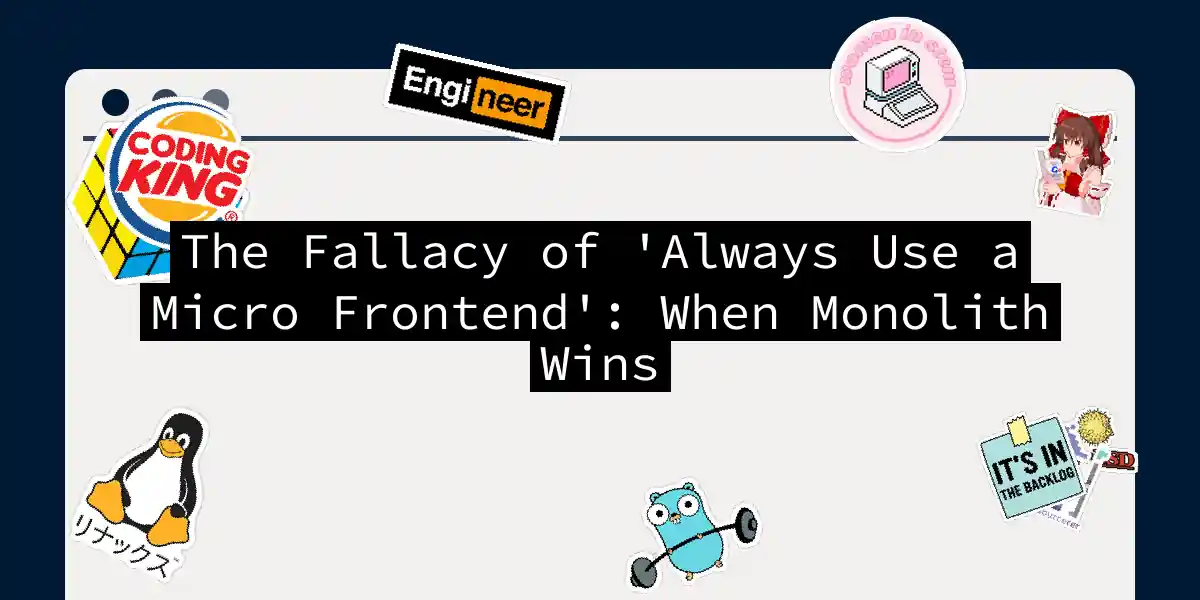
The Fallacy of 'Always Use a Micro Frontend': When Monolith Wins
There’s a peculiar phenomenon in tech: every few years, we collectively decide that the previous architectural pattern was basically hot garbage, and the new shiny approach is the answer to everything. We’re living through that moment with micro-frontends. The hype is real. Blog posts everywhere declare that monoliths are dead, that enterprise-scale applications must adopt micro-frontends, and that if you’re still building monoliths in 2025, you’re basically coding like it’s the year 2000....



